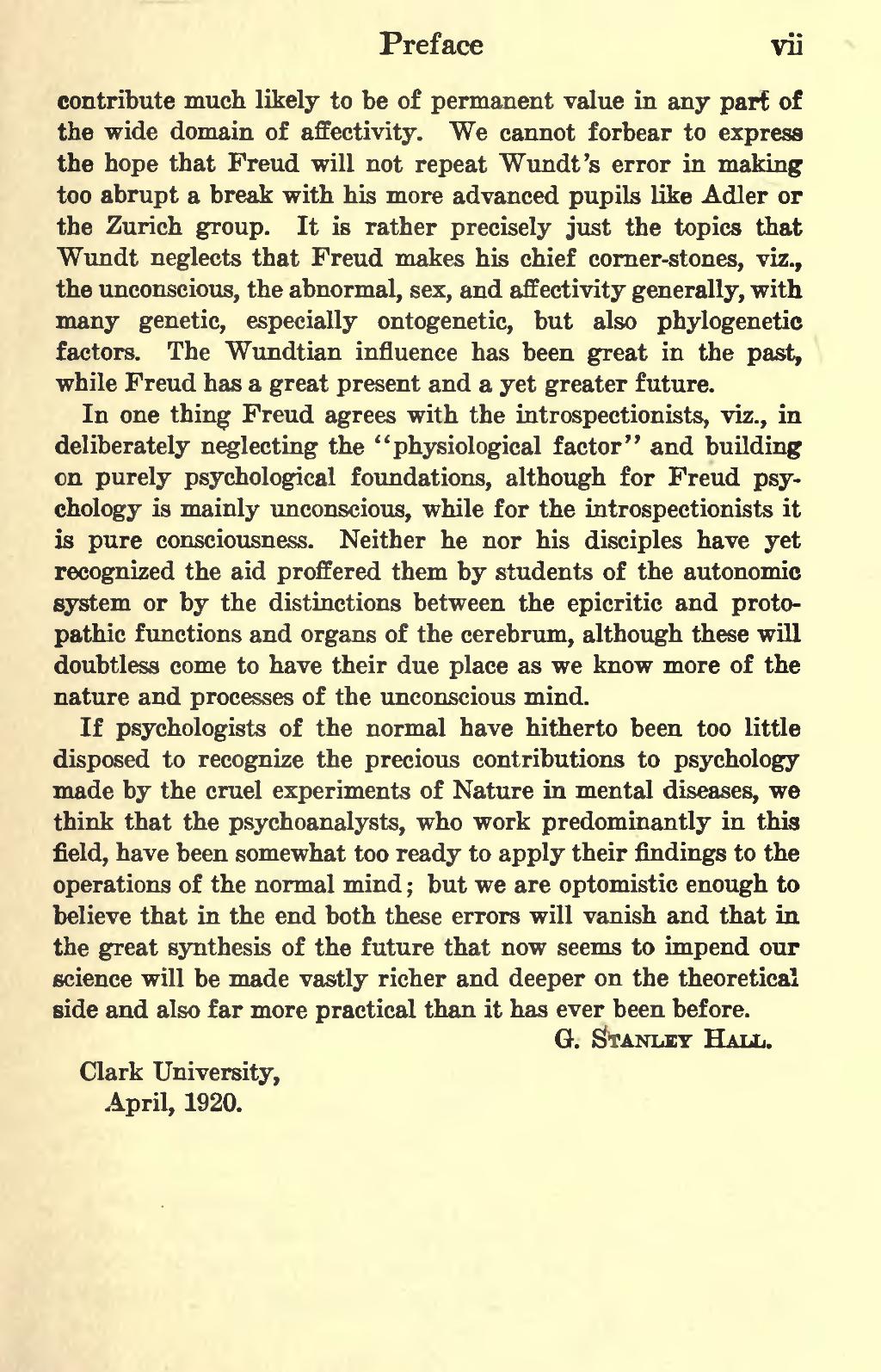contribute much likely to be of permanent value in any part of the wide domain of affectivity. We cannot forbear to express the hope that Freud will not repeat Wundt's error in making too abrupt a break with his more advanced pupils like Adler or the Zurich group. It is rather precisely just the topics that Wundt neglects that Freud makes his chief corner-stones, viz., the unconscious, the abnormal, sex, and affectivity generally, with many genetic, especially ontogenetic, but also phylogenetic factors. The Wundtian influence has been great in the past, while Freud has a great present and a yet greater future.
In one thing Freud agrees with the introspectionists, viz., in deliberately neglecting the "physiological factor" and building on purely psychological foundations, although for Freud psychology is mainly unconscious, while for the introspectionists it is pure consciousness. Neither he nor his disciples have yet recognized the aid proffered them by students of the autonomic system or by the distinctions between the epicritic and protopathic functions and organs of the cerebrum, although these will doubtless come to have their due place as we know more of the nature and processes of the unconscious mind.
If psychologists of the normal have hitherto been too little disposed to recognize the precious contributions to psychology made by the cruel experiments of Nature in mental diseases, we think that the psychoanalysts, who work predominantly in this field, have been somewhat too ready to apply their findings to the operations of the normal mind; but we are optimistic enough to believe that in the end both these errors will vanish and that in the great synthesis of the future that now seems to impend our science will be made vastly richer and deeper on the theoretical side and also far more practical than it has ever been before.
G. Stanley Hall.
Clark University, April, 1920.
